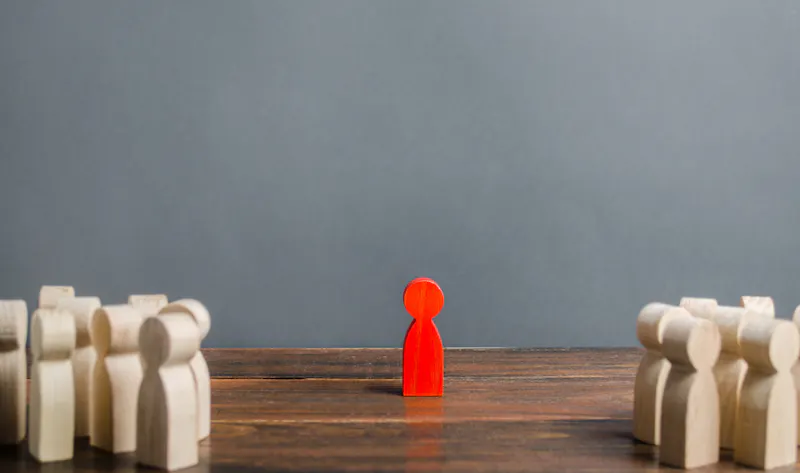How to deal with loneliness
What's covered?



Feeling lonely is a normal emotion. But the COVID-19 pandemic has increased these feelings for many people. The good news is that there are many things you can do to regain a sense of belonging and help combat loneliness.
Accept that it’s normal to feel lonely sometimes
It's important to accept you'll feel lonely sometimes for different reasons — from stress to lack of sleep and low self-esteem.
You don’t have to be alone to feel lonely either. You might feel lonely even when spending time with friends, family, or loved ones. Some people who appear connected might feel isolated from others too.
Remember that you're not alone in feeling this way — it's something you can overcome.
Nurture your existing relationships and make new connections
Try to schedule a weekly call with your friends and family. A conversation with someone you care about can make you feel more connected and boost your mood.
You could also try joining a group that focuses on your hobbies — like crafts and exercise classes. These are a great way to meet new people too.
Get out in nature
Spending time in green spaces can benefit both your mind and body. It can be as simple as going for a daily walk, gardening, or taking your kids to the playground.
Spending time outdoors can help to reduce feelings of loneliness and isolation by:
- improving your mood
- giving you some relaxation time
- helping you feel more connected to nature
- meeting new people
- connecting you to your local community
Prioritise your sleep
Lack of sleep can significantly affect your emotional state — this makes it harder for you to cope with stress.
Some things that might affect your sleep quality include:
- work-related stress
- unsociable working hours
- travelling long distances
- caffeine
- alcohol
Research shows that improved sleep quality helps to reduce depression, anxiety, and stress. Try and aim for 7 to 8 hours of sleep a night. If you’re struggling to sleep, try a 20-minute nap during the day.
Find out more about how to improve your sleep.
Follow a balanced diet
Prioritise eating foods that prevent spiking your blood sugar levels — like the Mediterranean diet. Stable blood sugar levels can significantly affect your mood and energy levels.
Try to stay active
Staying active can work wonders on your mental health. Exercise improves your energy levels and self-esteem. It also helps to generate feel-good hormones called endorphins, which boost your mood.
You could try mood-boosting aerobic exercises like:
- jogging
- swimming
- cycling
- walking
- gardening
- dancing
Avoid drugs and alcohol
Drugs and alcohol are coping mechanisms that might make you feel better in the short term. But they're likely to make you feel worse over time. And both contribute to poor mental health — particularly if you already live with anxiety and depression.
If you need support with drugs and alcohol, speak to your GP for advice.
Seek professional help or talking therapies
Speaking to a mental health professional is one of the best things you can do to overcome feelings of loneliness. They might help you explore the factors behind your feelings and provide a safe space for you to do so.
You can access a type of talking therapy called cognitive behavioural therapy (CBT) for free through the NHS. You can refer yourself directly without a referral from a GP.
You could also talk to Samaritans. They provide a free 24-hour free listening service — call 116 123.
Contact 111 or the NHS helpline (England only) for mental health emergencies.
Kuria, M. W., Ndetei, D. M., Obot, I. S., Khasakhala, L. I., Bagaka, B. M., Mbugua, M. N., & Kamau, J. (2012). The Association between Alcohol Dependence and Depression before and after Treatment for Alcohol Dependence. ISRN psychiatry, 2012, 482802. https://doi.org/10.5402/2012/482802
Meredith, G. R., Rakow, D. A., Eldermire, E., Madsen, C. G., Shelley, S. P., & Sachs, N. A. (2020). Minimum Time Dose in Nature to Positively Impact the Mental Health of College-Aged Students, and How to Measure It: A Scoping Review.Frontiers in psychology,10, 2942. https://doi.org/10.3389/fpsyg.2019.02942
Scott, A. J., Webb, T. L., Martyn-St James, M., Rowse, G., & Weich, S. (2021). Improving sleep quality leads to better mental health: A meta-analysis of randomised controlled trials.Sleep medicine reviews,60, 101556. https://doi.org/10.1016/j.smrv.2021.101556
Sharma, A., Madaan, V., & Petty, F. D. (2006). Exercise for mental health.Primary care companion to the Journal of clinical psychiatry,8(2), 106. https://doi.org/10.4088/pcc.v08n0208a
Ventriglio, A., Sancassiani, F., Contu, M. P., Latorre, M., Di Slavatore, M., Fornaro, M., & Bhugra, D. (2020). Mediterranean Diet and its Benefits on Health and Mental Health: A Literature Review. Clinical practice and epidemiology in mental health : CP & EMH, 16(Suppl-1), 156–164. https://doi.org/10.2174/1745017902016010156
National Health Service. Feeling lonely. Retrieved 6 June 2022 from https://www.nhs.uk/mental-health/feelings-symptoms-behaviours/feelings-and-symptoms/feeling-lonely/